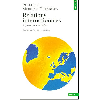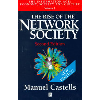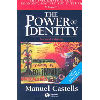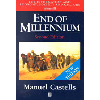Catégories
 > 3 Droit, économie > 3.15 Économie > Interdépendance > Relations économiques internationales > Mondialisation > 3 Droit, économie > 3.15 Économie > Interdépendance > Relations économiques internationales > Mondialisation
Mondialisation
Commentaire :
Market-driven transnationalization of economic relations (trade, foreign investment, financial flows), which leads to a deepening of economic interdependence and consequently, erodes the capacity of governments to regulate the national economy.
|


 Affiner la recherche
Affiner la recherche
Titre de série : L' ère de l'information., 3 Titre : Fin de millénaire Type de document : texte imprimé Auteurs : Manuel Castells (1942-....), Auteur ; Jean-Pierre Bardos, Traducteur Editeur : [Paris] : Fayard Année de publication : 1999 Importance : 492 p. Présentation : couv. ill. en coul. Format : 24 cm ISBN/ISSN/EAN : 978-2-213-60336-0 Prix : 198 F Note générale : Bibliogr. p. 429-453. Index Langues : Français (fre) Langues originales : Anglais (eng) Catégories : 1 Sciences sociales et humaines:1.40 Systèmes sociaux:Système social:Société de l'information
3 Droit, économie:3.15 Économie:Interdépendance:Relations économiques internationales:Mondialisation
4 Sciences politiques et administratives:4.10 Relations internationales:Relations internationales:Relations Internationales 1989-2001Mots-clés : Mondialisation société de l'information Relations Internationales Index. décimale : 303.48 Causes de changement social Note de contenu : Le troisième et dernier volume de la trilogie est consacré à la compréhension du monde politique et social qui se met en place, en cette fin de millénaire, du fait de l'avènement de la société en réseaux et de l'affirmation des identités.
Manuel Castells revient d'abord sur l'effondrement de l'URSS, qu'il analyse comme l'effet de l'incapacité du système bureaucratique à passer à l'âge de l'information. Il montre ensuite comment le capitalisme à l'ère des réseaux accroît les inégalités et l'exclusion à l'échelle de la planète : en témoignent tout autant l'état de l'Afrique que la pauvreté urbaine et l'exploitation des enfants. Il s'attache dans le même mouvement à expliquer pourquoi la globalisation en cours est aussi celle des mafias, qui n'ont pas leur pareil pour mettre à profit l'ouverture des frontières et les nouvelles technologies. Revenant alors sur le boom qu'ont connu les économies asiatiques pendant deux décennies, il explique la crise financière qu'elles traversent depuis quelque temps comme le signe qu'à l'ère de l'information on ne peut plus piloter le développement économique par le haut.
Dans ce contexte, l'unification européenne, première expérience de passage de l'Etat-nation à l'Etat en réseau, doit être regardée comme une entreprise de portée historique.
En guise de conclusion générale de la trilogie, Manuel Cascells dégage les principes d'une théorie de la société à l'ère de l'information.
L' ère de l'information., 3. Fin de millénaire [texte imprimé] / Manuel Castells (1942-....), Auteur ; Jean-Pierre Bardos, Traducteur . - [Paris] : Fayard, 1999 . - 492 p. : couv. ill. en coul. ; 24 cm.
ISBN : 978-2-213-60336-0 : 198 F
Bibliogr. p. 429-453. Index
Langues : Français (fre) Langues originales : Anglais (eng)
Catégories : 1 Sciences sociales et humaines:1.40 Systèmes sociaux:Système social:Société de l'information
3 Droit, économie:3.15 Économie:Interdépendance:Relations économiques internationales:Mondialisation
4 Sciences politiques et administratives:4.10 Relations internationales:Relations internationales:Relations Internationales 1989-2001Mots-clés : Mondialisation société de l'information Relations Internationales Index. décimale : 303.48 Causes de changement social Note de contenu : Le troisième et dernier volume de la trilogie est consacré à la compréhension du monde politique et social qui se met en place, en cette fin de millénaire, du fait de l'avènement de la société en réseaux et de l'affirmation des identités.
Manuel Castells revient d'abord sur l'effondrement de l'URSS, qu'il analyse comme l'effet de l'incapacité du système bureaucratique à passer à l'âge de l'information. Il montre ensuite comment le capitalisme à l'ère des réseaux accroît les inégalités et l'exclusion à l'échelle de la planète : en témoignent tout autant l'état de l'Afrique que la pauvreté urbaine et l'exploitation des enfants. Il s'attache dans le même mouvement à expliquer pourquoi la globalisation en cours est aussi celle des mafias, qui n'ont pas leur pareil pour mettre à profit l'ouverture des frontières et les nouvelles technologies. Revenant alors sur le boom qu'ont connu les économies asiatiques pendant deux décennies, il explique la crise financière qu'elles traversent depuis quelque temps comme le signe qu'à l'ère de l'information on ne peut plus piloter le développement économique par le haut.
Dans ce contexte, l'unification européenne, première expérience de passage de l'Etat-nation à l'Etat en réseau, doit être regardée comme une entreprise de portée historique.
En guise de conclusion générale de la trilogie, Manuel Cascells dégage les principes d'une théorie de la société à l'ère de l'information.
Réservation
Réserver ce document
Exemplaires (1)
Code-barres Cote Support Localisation Section Disponibilité 11869000142 303.48 CAS Livre Bibliothèque principale Géopolitique Disponible Documents numériques

Fin de millénaireImage Jpeg
Manuel CastellsImage Jpeg
Titre de série : Relations internationales, 2 Titre : Relations internationales : 2. Questions mondiales Type de document : texte imprimé Auteurs : Philippe Moreau Defarges (1943-....), Auteur Mention d'édition : 5e éd. mise à jour Editeur : Paris [France] : Éditions du Seuil Année de publication : 2002 Collection : Points Sous-collection : Essais num. 260 Importance : 290 p. Présentation : cartes, couv. ill. Format : 18 cm ISBN/ISSN/EAN : 978-2-02-056494-6 Prix : 7,80 EUR Note générale : Bibliogr. p. 259-270. Index Langues : Français (fre) Catégories : 3 Droit, économie:3.15 Économie:Interdépendance:Relations économiques internationales:Mondialisation
4 Sciences politiques et administratives:4.10 Relations internationales:Relations internationales:Relations Est-Ouest
4 Sciences politiques et administratives:4.10 Relations internationales:Relations internationales:Relations internationales 1945-...Mots-clés : relations internationales guerre froide désarmement mondialisation Index. décimale : 327.0904 Relations internationales XX siècle Note de contenu : La terre s'unifie de plus en plus par la multiplication des flux et réseaux de toutes sortes : commerce, investissements, finances, tourisme... Cependant, ce système mondial demeure fondé sur l'Etat-nation, entité juridiquement souveraine.
Ce volume, consacré aux problèmes mondiaux, analyse les questions d'ensemble soulevées par cette dialectique entre interdépendance et indépendance : la notion d'ordre international et ses transformations ; les enjeux d'armement et de désarmement ; l'organisation des échanges ; le contrôle et la gestion des ressources ; enfin les droits de l'homme, qu'il s'agisse des individus ou des minorités.
Comme dans le premier volume, tous les chapitres contiennent des outils pédagogiques précieux : définitions des termes de base, chronologies détaillées, encadrés. Ce volume comprend en outre une bibliographie thématique et un atlas cartographique.Relations internationales, 2. Relations internationales : 2. Questions mondiales [texte imprimé] / Philippe Moreau Defarges (1943-....), Auteur . - 5e éd. mise à jour . - , 2002 . - 290 p. : cartes, couv. ill. ; 18 cm. - (. Essais; 260) .
ISBN : 978-2-02-056494-6 : 7,80 EUR
Bibliogr. p. 259-270. Index
Langues : Français (fre)
Catégories : 3 Droit, économie:3.15 Économie:Interdépendance:Relations économiques internationales:Mondialisation
4 Sciences politiques et administratives:4.10 Relations internationales:Relations internationales:Relations Est-Ouest
4 Sciences politiques et administratives:4.10 Relations internationales:Relations internationales:Relations internationales 1945-...Mots-clés : relations internationales guerre froide désarmement mondialisation Index. décimale : 327.0904 Relations internationales XX siècle Note de contenu : La terre s'unifie de plus en plus par la multiplication des flux et réseaux de toutes sortes : commerce, investissements, finances, tourisme... Cependant, ce système mondial demeure fondé sur l'Etat-nation, entité juridiquement souveraine.
Ce volume, consacré aux problèmes mondiaux, analyse les questions d'ensemble soulevées par cette dialectique entre interdépendance et indépendance : la notion d'ordre international et ses transformations ; les enjeux d'armement et de désarmement ; l'organisation des échanges ; le contrôle et la gestion des ressources ; enfin les droits de l'homme, qu'il s'agisse des individus ou des minorités.
Comme dans le premier volume, tous les chapitres contiennent des outils pédagogiques précieux : définitions des termes de base, chronologies détaillées, encadrés. Ce volume comprend en outre une bibliographie thématique et un atlas cartographique.Réservation
Réserver ce document
Exemplaires (3)
Code-barres Cote Support Localisation Section Disponibilité 11869000011 327.0904 MOR Livre Bibliothèque principale Géopolitique Disponible 11869000012 327.0904 MOR Livre Bibliothèque principale Géopolitique Disponible 11869000013 327.0904 MOR Livre Bibliothèque principale Géopolitique Exclu du prêt Documents numériques

couvertureImage Jpeg
Philippe Moreau DefargesImage JpegThe Information Age: Economy, Society and Culture, 1. The rise of the network society / Manuel Castells

Titre de série : The Information Age: Economy, Society and Culture, 1 Titre : The rise of the network society Type de document : texte imprimé Auteurs : Manuel Castells (1942-....) Mention d'édition : 2nd ed. Editeur : Oxford [Angleterre] : Blackwell Publishers Année de publication : 2000 Importance : xxix, 594 p. Présentation : couv. ill., ill., tables Format : 23 cm ISBN/ISSN/EAN : 978-0-631-22140-1 Langues : Anglais (eng) Langues originales : Anglais (eng) Catégories : 1 Sciences sociales et humaines:1.40 Systèmes sociaux:Système social:Société de l'information
3 Droit, économie:3.15 Économie:Interdépendance:Relations économiques internationales:MondialisationMots-clés : tecnologie de l'information économie de l'information société de l'information flux d'information Index. décimale : 303.48 Causes de changement social Résumé : Note de contenu : This book, the first in Castells' ground-breaking trilogy, is an account of the economic and social dynamics of the new age of information. Based on research in the USA, Asia, Latin America, and Europe, it aims to formulate a systematic theory of the information society which takes account of the fundamental effects of information technology on the contemporary world.
The global economy is now characterized by the almost instantaneous flow and exchange of information, capital, and cultural communication. These flows order and condition both consumption and production. The networks themselves reflect and create distinctive cultures. Both they and the traffic they carry are largely outside national regulation. Our dependence on the new modes of informational flow gives enormous power to those in a position to control them to control us. The main political arena is now the media, and the media are not politically answerable.
Manuel Castells describes the accelerating pace of innovation and social transformation. He examines the processes of globalization that threaten to make redundant whole countries and peoples excluded from informational networks. He investigates the culture, institutions, and organizations of the network enterprise and the concomitant transformation of work and employment. He shows that in the advanced economies production is now concentrated on an educated section of the population aged between 25 and 40. He suggests that the effect of this accelerating trend may not be mass unemployment but the extreme flexibilization of work and individualization of labor, and, in consequence, a highly segmented social structure.
This new edition of The Rise of the Network Society has been substantially modified and details the new social and economic developments brought by the Internet and the 'new economy'. The volume has been updated throughout to take account of changes since its original publication.The Information Age: Economy, Society and Culture, 1. The rise of the network society [texte imprimé] / Manuel Castells (1942-....) . - 2nd ed. . - Oxford (Angleterre) : Blackwell Publishers, 2000 . - xxix, 594 p. : couv. ill., ill., tables ; 23 cm.
ISBN : 978-0-631-22140-1
Langues : Anglais (eng) Langues originales : Anglais (eng)
Catégories : 1 Sciences sociales et humaines:1.40 Systèmes sociaux:Système social:Société de l'information
3 Droit, économie:3.15 Économie:Interdépendance:Relations économiques internationales:MondialisationMots-clés : tecnologie de l'information économie de l'information société de l'information flux d'information Index. décimale : 303.48 Causes de changement social Résumé : Note de contenu : This book, the first in Castells' ground-breaking trilogy, is an account of the economic and social dynamics of the new age of information. Based on research in the USA, Asia, Latin America, and Europe, it aims to formulate a systematic theory of the information society which takes account of the fundamental effects of information technology on the contemporary world.
The global economy is now characterized by the almost instantaneous flow and exchange of information, capital, and cultural communication. These flows order and condition both consumption and production. The networks themselves reflect and create distinctive cultures. Both they and the traffic they carry are largely outside national regulation. Our dependence on the new modes of informational flow gives enormous power to those in a position to control them to control us. The main political arena is now the media, and the media are not politically answerable.
Manuel Castells describes the accelerating pace of innovation and social transformation. He examines the processes of globalization that threaten to make redundant whole countries and peoples excluded from informational networks. He investigates the culture, institutions, and organizations of the network enterprise and the concomitant transformation of work and employment. He shows that in the advanced economies production is now concentrated on an educated section of the population aged between 25 and 40. He suggests that the effect of this accelerating trend may not be mass unemployment but the extreme flexibilization of work and individualization of labor, and, in consequence, a highly segmented social structure.
This new edition of The Rise of the Network Society has been substantially modified and details the new social and economic developments brought by the Internet and the 'new economy'. The volume has been updated throughout to take account of changes since its original publication.Réservation
Réserver ce document
Exemplaires (1)
Code-barres Cote Support Localisation Section Disponibilité 11869000143 303.48 CAS Livre Bibliothèque principale Géopolitique Disponible Documents numériques

Manue CastellsImage Jpeg
The Rise of the Network SocietyImage Jpeg
Titre de série : The Information Age: Economy, Society and Culture, 2 Titre : The power of identity Type de document : texte imprimé Auteurs : Manuel Castells (1942-....) Editeur : Oxford [Angleterre] : Blackwell Publishers Année de publication : 1997 Importance : xv, 461 p. Présentation : ill., maps Format : 23 cm ISBN/ISSN/EAN : 1-557-86873-5 Langues : Anglais (eng) Langues originales : Anglais (eng) Catégories : 1 Sciences sociales et humaines:1.40 Systèmes sociaux:Système social:Société de l'information
3 Droit, économie:3.15 Économie:Interdépendance:Relations économiques internationales:MondialisationMots-clés : identité société de l'information mondialisation mouvements sociaux crise de la démocratie Index. décimale : 303.48 Causes de changement social Résumé : Note de contenu : The Power of Identity is the second volume of Manuel Castells’ trilogy, The Information Age: Economy, Society, and Culture. It deals with the social, political, and cultural dynamics associated with the technological transformation of our societies and with the globalization of the economy. It analyzes the importance of cultural, religious, and national identities as sources of meaning for people, and the implications of these identities for social movements. It studies grassroots mobilizations against the unfettered globalization of wealth and power, and considers the formation of alternative projects of social organization, as represented by the environmental movement and the women’s movement. It also analyzes the crisis of the nation-state and its transformation into a network state, and the effects on political democracies of the difficulties of international governance and the submission of political representation to the dictates of media politics and the politics of scandal.
This substantially expanded second edition updates and elaborates the analysis of these themes, adding new sections on al-Qaeda and global terrorist networks, on the anti-globalization movement, on American unilateralism and the conflicts of global governance, on the crisis of political legitimacy throughout the world, and on the theory of the network state.The Information Age: Economy, Society and Culture, 2. The power of identity [texte imprimé] / Manuel Castells (1942-....) . - Oxford (Angleterre) : Blackwell Publishers, 1997 . - xv, 461 p. : ill., maps ; 23 cm.
ISBN : 1-557-86873-5
Langues : Anglais (eng) Langues originales : Anglais (eng)
Catégories : 1 Sciences sociales et humaines:1.40 Systèmes sociaux:Système social:Société de l'information
3 Droit, économie:3.15 Économie:Interdépendance:Relations économiques internationales:MondialisationMots-clés : identité société de l'information mondialisation mouvements sociaux crise de la démocratie Index. décimale : 303.48 Causes de changement social Résumé : Note de contenu : The Power of Identity is the second volume of Manuel Castells’ trilogy, The Information Age: Economy, Society, and Culture. It deals with the social, political, and cultural dynamics associated with the technological transformation of our societies and with the globalization of the economy. It analyzes the importance of cultural, religious, and national identities as sources of meaning for people, and the implications of these identities for social movements. It studies grassroots mobilizations against the unfettered globalization of wealth and power, and considers the formation of alternative projects of social organization, as represented by the environmental movement and the women’s movement. It also analyzes the crisis of the nation-state and its transformation into a network state, and the effects on political democracies of the difficulties of international governance and the submission of political representation to the dictates of media politics and the politics of scandal.
This substantially expanded second edition updates and elaborates the analysis of these themes, adding new sections on al-Qaeda and global terrorist networks, on the anti-globalization movement, on American unilateralism and the conflicts of global governance, on the crisis of political legitimacy throughout the world, and on the theory of the network state.Réservation
Réserver ce document
Exemplaires (1)
Code-barres Cote Support Localisation Section Disponibilité 11869000144 303.48 CAS Livre Bibliothèque principale Géopolitique Disponible Documents numériques

Manuel CastellsImage Jpeg
The Power of IdentityImage Jpeg
Titre de série : The Information Age: Economy, Society and Culture, 3 Titre : End of millennium Type de document : texte imprimé Auteurs : Manuel Castells (1942-....) Mention d'édition : 2nd ed. Editeur : Oxford [Angleterre] : Blackwell Publishers Année de publication : 2000 Importance : xv, 448 p. Présentation : ill. Format : 23 cm ISBN/ISSN/EAN : 978-0-631-22139-5 Langues : Anglais (eng) Langues originales : Anglais (eng) Catégories : 1 Sciences sociales et humaines:1.40 Systèmes sociaux:Système social:Société de l'information
3 Droit, économie:3.15 Économie:Interdépendance:Relations économiques internationales:Mondialisation
4 Sciences politiques et administratives:4.10 Relations internationales:Relations internationales:Relations Internationales 1989-2001Mots-clés : Mondialisation société de l'information relations internationales Index. décimale : 303.48 Causes de changement social Résumé : Note de contenu : The final volume in Manuel Castells' trilogy is devoted to processes of global social change induced by interaction between networks and identity. Castells studies empirically the collapse of the Soviet Union, tracing it back to the incapacity of industrial statism to manage the transition to the Information Age. He shows the rise of inequality, polarization, and social exclusion throughout the world, focusing on Africa, urban poverty, and the plight of children. He documents the formation of a global criminal economy that deeply affects economies and politics in many countries. He analyzes the political and cultural foundations of the emergence of the Asian Pacific as a critically important region in the global economy. And he reflects on the contradictions of European unification, proposing the concept of the network state. The new edition of End of Millennium includes a revised chapter on Pacific Asia taking into account recent trends, while the book has also been updated to account for developments in the European Union.
In the general conclusion of the trilogy, included in this volume, Castells draws together the threads of his arguments and his findings, presenting a systematic interpretation of our world.The Information Age: Economy, Society and Culture, 3. End of millennium [texte imprimé] / Manuel Castells (1942-....) . - 2nd ed. . - Oxford (Angleterre) : Blackwell Publishers, 2000 . - xv, 448 p. : ill. ; 23 cm.
ISBN : 978-0-631-22139-5
Langues : Anglais (eng) Langues originales : Anglais (eng)
Catégories : 1 Sciences sociales et humaines:1.40 Systèmes sociaux:Système social:Société de l'information
3 Droit, économie:3.15 Économie:Interdépendance:Relations économiques internationales:Mondialisation
4 Sciences politiques et administratives:4.10 Relations internationales:Relations internationales:Relations Internationales 1989-2001Mots-clés : Mondialisation société de l'information relations internationales Index. décimale : 303.48 Causes de changement social Résumé : Note de contenu : The final volume in Manuel Castells' trilogy is devoted to processes of global social change induced by interaction between networks and identity. Castells studies empirically the collapse of the Soviet Union, tracing it back to the incapacity of industrial statism to manage the transition to the Information Age. He shows the rise of inequality, polarization, and social exclusion throughout the world, focusing on Africa, urban poverty, and the plight of children. He documents the formation of a global criminal economy that deeply affects economies and politics in many countries. He analyzes the political and cultural foundations of the emergence of the Asian Pacific as a critically important region in the global economy. And he reflects on the contradictions of European unification, proposing the concept of the network state. The new edition of End of Millennium includes a revised chapter on Pacific Asia taking into account recent trends, while the book has also been updated to account for developments in the European Union.
In the general conclusion of the trilogy, included in this volume, Castells draws together the threads of his arguments and his findings, presenting a systematic interpretation of our world.Réservation
Réserver ce document
Exemplaires (1)
Code-barres Cote Support Localisation Section Disponibilité 11869000145 303.48 CAS Livre Bibliothèque principale Géopolitique Disponible Documents numériques

End of MilleniumImage Jpeg
Manuel CastellsImage Jpeg




